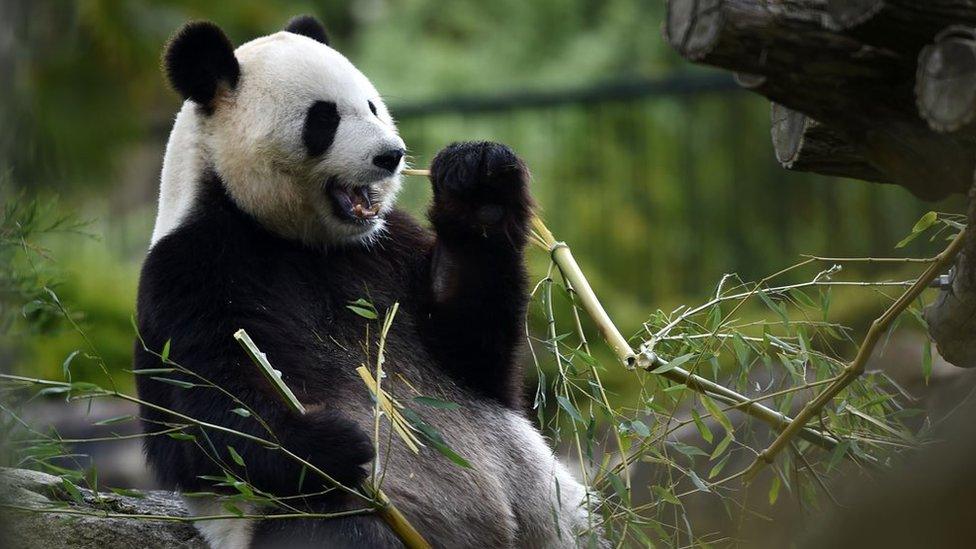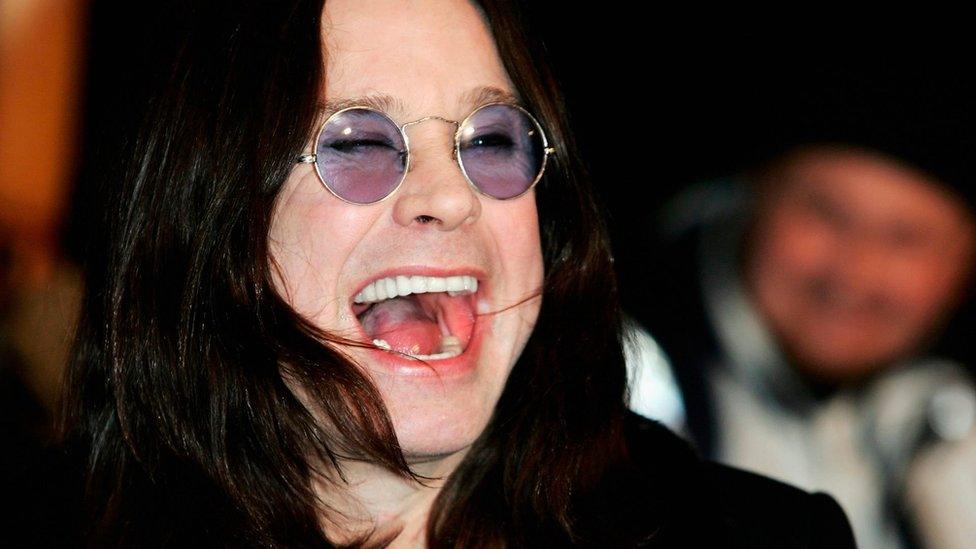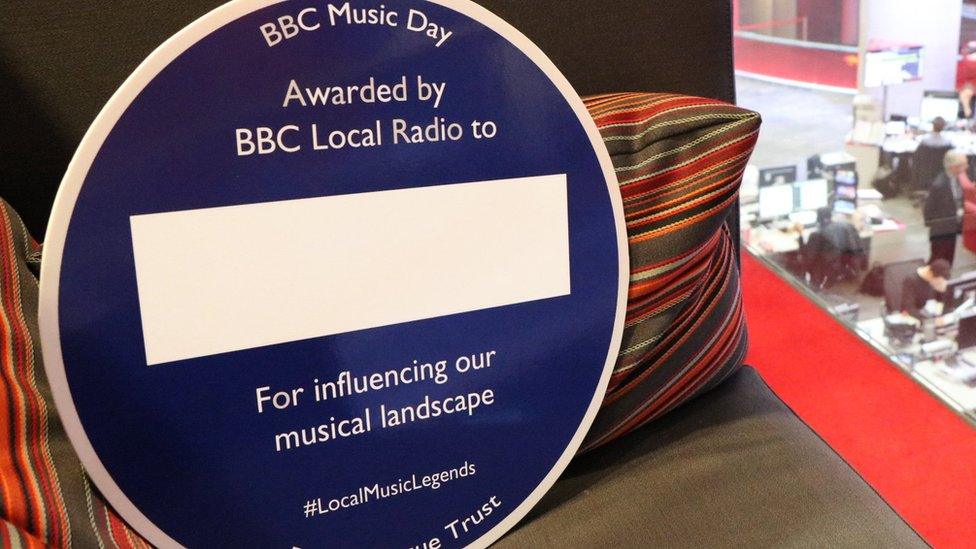BBC Music Day: What on earth is Tamboo Bamboo?
- Published

Sadly, Tamboo Bamboo has nothing to do with pandas
Next month in Bradford, 800 children will attempt to break the world record for Tamboo Bamboo, as part of the third annual BBC Music Day.
If you haven't heard of it before, Tamboo Bamboo originates from the carnival traditions of the Caribbean, and involves hammering carved sticks on the ground to create complex rhythms.
It originally emerged in Trinidad, after skinned drums were banned by the British government in 1884. The word Tamboo comes from the French word Tambour, which itself means drum.
Trinidad began holding carnivals in the late 1700s when French planters arrived, and their slaves formed their own festival, fuelled by drum music.
After emancipation in 1834, the celebrations became noisier and more colourful, but disturbances led the government to clamp down on the use of sticks and drums.
In 1934 the Tamboo Bamboo was banned too, after the instruments were sharpened to a vicious point and used as weapons between rival gangs.
Musicians adopted the Steel Drum as a replacement, but the Bamboo tradition has recently re-emerged as a simple way of introducing children to music.
Sadly, it has nothing to do with pandas.
The world record attempt will take place in Bradford's City Park on BBC Music Day, which takes place on Thursday, 15 June.
Schoolchildren in Portsmouth will also gather to create a new drumming world record - and both attempts will be covered on CBBC.

Ozzy Osbourne will be an ambassador for BBC Music Day
BBC Music Day, which was established in 2015, is a celebration of music that "aims to unite communities and generations".
The line-up for this year's event has just been announced and includes:
Pop band Texas playing with the BBC Scottish Symphony Orchestra in a free concert from Glasgow's Barrowlands
Throughout the day, more than 45 official new blue plaques will be unveiled to commemorate significant locations in music history - with each BBC Local Radio Station choosing one for their area
Ozzy Osbourne, Alfie Boe and Shaun Ryder will act as "ambassadors", with surprise events in their hometowns
Hundreds of bell-ringing groups around the world will unite to peal their bells at 19:00 BST
1,000 musicians will take part in a series of performances over 24 hours in Sheffield
Nationwide concerts in children's hospitals
Almost 50,000 school pupils will be playing a classical piece at their school assembly
In addition, Radio 2 will broadcast a series called Songs my Sons Loved, in which the mothers of four soldiers killed in Iraq and Afghanistan will remember their sons through the music they loved.
Presented by Jeremy Vine, the documentaries will be broadcast daily in the week commencing 12 June.
BBC Music Day was originally scheduled for 9 June, 2017, but the day was changed to accommodate the UK's General Election. Some events, especially ticketed ones, will still take place on the first date.

Follow us on Facebook, external, on Twitter @BBCNewsEnts, external, or on Instagram at bbcnewsents, external. If you have a story suggestion email entertainment.news@bbc.co.uk, external.

- Published20 February 2017
